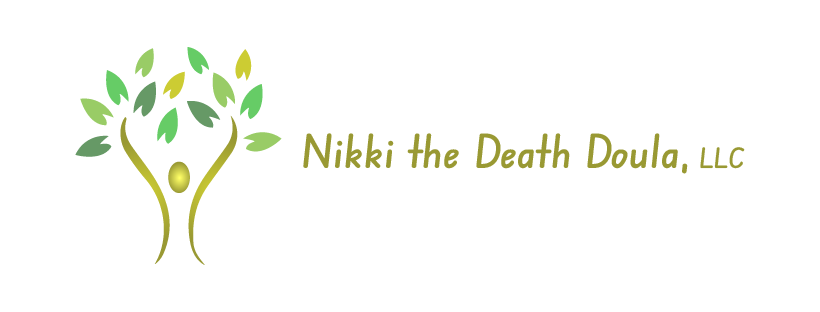Why Open Conversations About Death Are Important
Death. Go ahead. Say it outloud. I promise you saying it does not will it into existence. If so I’d have millions of dollars and a lot of kittens right now.
In too many cultures, death is treated as a taboo subject, either whispered about or just avoided at all costs. In my time as a death doula, I’ve come to see how amazing open conversations about death can be—not just for those nearing the end of life but for everyone.
Ok, yes, talking about death may feel uncomfortable or even scary at first, but it’s a conversation that can lead to deeper understanding, emotional healing, and greater appreciation for life itself. But why are these discussions so important and how can they change our perspective on life and loss?
Breaking the Taboo
The silence around death often stems from fear. We worry about saying the wrong thing, facing our own mortality, or stirring up icky emotions. But avoiding the topic doesn’t make death any less real—it just makes it harder to prepare for and process when it does happen. Ever stick your foot in your mouth at a funeral? Me too. Because like a lot of us I didn’t grow up talking about death.
Open conversations about death help normalize it as a natural part of life. When we talk about death, we reduce its power to intimidate and isolate. It becomes something we can face together, with honesty and support, rather than something we have to handle alone.
Building Deeper Connections
Talking about death can bring us closer to our loved ones. These conversations often reveal what truly matters to people—their values, wishes, and fears.
For example, discussing end-of-life preferences can help families make informed decisions and honor their loved one’s wishes when the time comes. It can also alleviate guilt and conflict by ensuring everyone is on the same page.
Beyond practical planning, these discussions can deepen emotional bonds. Sharing memories, reflecting on life’s meaning, and expressing love can create moments of connection that are profoundly comforting, both in life and in loss. Trust me, I have seen this first hand MANY times!
Encouraging Life Reflection
Conversations about death often lead to reflections on life. They encourage us to think about how we’re living, what we value, and what kind of legacy we want to leave behind.
When we acknowledge the reality of death, we’re reminded of life’s impermanence—and its beauty. It can inspire us to prioritize what truly matters, whether that’s spending more time with loved ones, pursuing a dream, or simply being present in the moment.
Reducing Fear and Uncertainty
Much of the fear surrounding death comes from the unknown. What will it feel like? What happens afterward? I don’t have all the answers but open conversations can provide clarity and comfort in a really uncomfortable time.
Talking about death allows us to explore these questions in a safe space, share knowledge, and learn from others’ experiences. It’s an opportunity to demystify death and approach it with curiosity rather than dread.
Creating a Culture of Compassion
When we talk openly about death, we foster a culture of compassion. We learn to support one another through grief, celebrate lives well-lived, and face our own mortality with grace. These conversations remind us that death is not just an end but a part of life’s cycle—one that connects us all.
Starting the Conversation
If you’ve never talked about death openly, it’s okay to start small. Share a thought, ask a question, or simply listen. The most important thing is to create a space where honesty and vulnerability are welcome.
By opening up about death, we can open the door to deeper understanding, connection, and healing. And most importantly, honor the fullness of life itself.
A great place to start would be a Death Cafe’! I host one monthly in person in Columbus, but you can find one near you or even virtually at Deathcafe.com.
